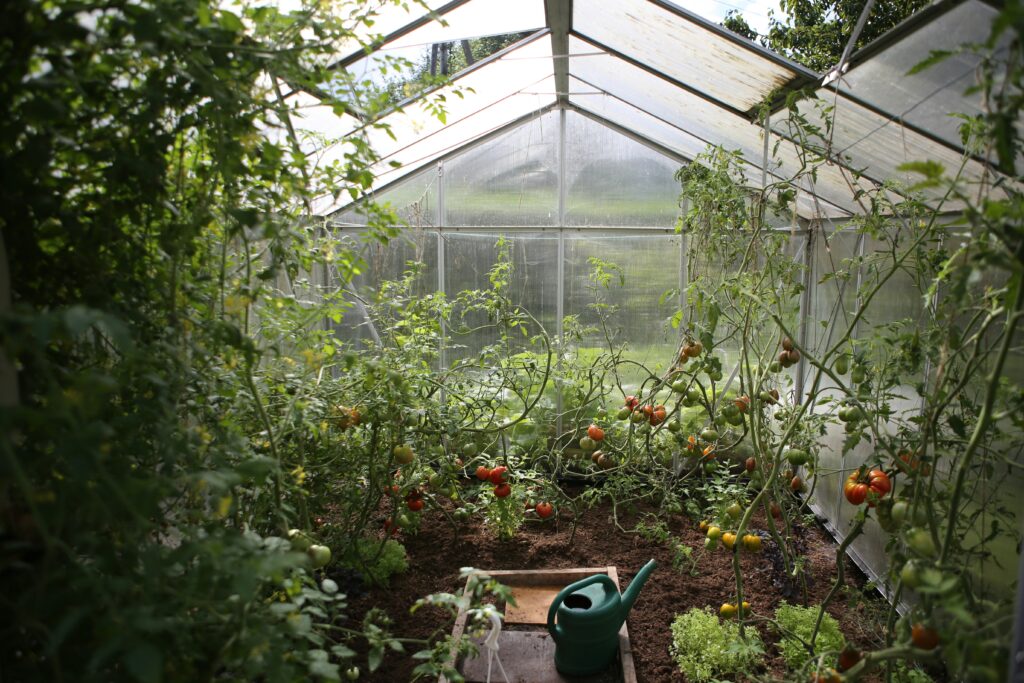Project Insights Report
Food Sustainability in the North: Skills Challenges and Opportunities in Community Greenhouse Projects
Food Sustainability in the North: Skills challenges and opportunities in community greenhouse projects
 Executive Summary
Executive Summary
Nearly a quarter of people in Canada lack access to affordable food, with food insecurity especially severe in northern territories—reaching up to 63% in Nunavut. Food insecurity is acute in Indigenous communities, given reduced access to and availability of traditional food sources, and diminished community capacity to participate in sovereign food systems following forced participation in residential school systems (i.e., loss of community knowledge, trauma associated with gardening). Addressing food insecurity must ensure Indigenous communities define and lead their own food and agricultural practices. Community-led greenhouse farming is a promising solution to improve local food systems and sustainability, but northern regions face unique challenges, including harsh climates, limited infrastructure, increased production costs, and skills gaps.
Given the advancements of innovative technologies pertaining to agricultural practice and its evolving skills needs, this report reviews the current and future competencies needed for community-led greenhouse projects in Northern Indigenous communities to inform the future of training programs and initiatives. Our research combines case studies, a review of literature and competency frameworks, and program evaluation. It also provides direction by identifying what works and enumerating gaps that hinder project success.
Food is deeply intertwined with cultural identity and practice. Working with newcomer and racialized populations, as well as Indigenous Peoples whose food traditions and preferences may not align with conventional agricultural practices, can be complex. Local community initiatives address the demand for labour and self-determination in food production but necessitate skills development to teach growers how to use innovative greenhouse technologies (e.g., geodesic domes, hydroponics, sustainable and alternative energy sources, AI-powered water and nutrient management systems, and machine learning in crop monitoring). Defined competency frameworks better inform the development and training of advanced greenhouse farming skills for both remote and urban communities, ensuring participation and retention in agriculture programs.
Since most projects require volunteers from local communities, co-designed, culturally sensitive pedagogy must be embedded in project development, design and deployment. This pedagogy must be trauma-informed and must recognize that food and farming are deeply contextual and culturally significant. In concert, equity, diversity and inclusion principles in agricultural education and training programs expand the reach and inclusivity of programs, increasing the talent pool to address labour shortages in the sector.
Green Iglu exemplifies this approach. The organization has formed relationships with several remote and Indigenous communities to build greenhouse infrastructure, and to co-develop and co-deliver training in community food production. Green Iglu’s goal is to foster self-sustainability and food sovereignty for acutely food-insecure communities.
Evaluating Green Iglu’s projects across various Indigenous communities revealed strengths and limitations in current community-led greenhouse initiatives. Several greenhouse domes were successfully constructed, and dozens of hours of training were delivered to participants. However, some projects struggled with engagement, faced high turnover rates, and were weakened due to limited pre-assessment of community needs and capacities before project delivery. Projects commonly began strong but were left unfinished, which left communities unsure of how to proceed. While the lead organization intentionally sought to reduce its input over time to increase community project leadership, this approach did not provide enough technical support and contributed to project incompleteness. Our findings support the development of a structured and comprehensive training protocol that can improve the success of future co-developed programs addressing food insecurity among community members.
This research emphasizes the need to strengthen local food supply chains through community-driven greenhouse farming, policy support, and innovative technology to address food insecurity and sustainability challenges. Tailored training models guided by comprehensive, culturally relevant competency frameworks and training guidelines that incorporate equity, diversity and inclusion principles can drive collaboration and empower Indigenous communities to achieve effective, sustainable solutions to address food insecurity.
Key Insights
Green Iglu’s greenhouse and training programs reached 191 total registrants across all formats, with 70 completing in-person training and 46 completing the revised online program. Given the period of programs reviewed, 6 out of 15 greenhouses were constructed. Logistical and environmental challenges impacted completion rates, highlighting gaps between planned and actual outcomes.
Finding enough labour and skills are particularly challenging in remote communities and urban settings, where community projects rely heavily on volunteers. Training programs in greenhouse management and sustainable agriculture foster economic growth and empower community members to self-determine their food security. Equity, diversity and inclusion are critical given the deeply contextual and cultural dimensions associated with food, as well as farming.
Community-driven approaches included tailoring crop selection to community preference; hiring local labour; and providing a flexible, basic-level curriculum. The partnership with Relay Education included hands-on and online training. This training could be improved by implementing early evaluation planning, robust data collection and iterative teaching to adapt to community needs and changing contexts.
 The Issue
The Issue
Food insecurity remains a critical and ongoing issue across Canada, with especially acute challenges in northern territories facing ruralness and geographic isolation. Despite Canada’s status as a major agricultural producer, 23% of Canadians are living in poverty and lack access to health and affordable food, with the situation being worse among Indigenous populations in the North. These disparities are driven by a complex mix of factors including geographic isolation, high living expenses, limited employment opportunities, higher rates of poverty and the legacy of colonialism which, all together, undermine food access and security.
Over time, various strategies have sought to tackle these issues. Most recently, community greenhouse and enclosed, environment-controlled food production facilities have been emphasized as new, innovative methods to improve access to fresh, affordable food for Northern Indigenous communities. While these initiatives show promise in improving food security, self-sufficiency and job creation, some challenges must first be addressed.
Gaps persist in local skills and labour, reliance on volunteers and a lack of targeted training programs adapted to evolving technologies and community needs. Unless interventions are co-developed and co-implemented, they often fail to engage with local Indigenous knowledge and science and cannot address the unique cultural, social and economic contexts of Northern Indigenous communities.
This project aims to lay the groundwork for more effective, inclusive and resilient solutions to Canada’s food insecurity crisis by integrating Future Skills Centre’s recommendations for development and culturally relevant approaches, especially for Indigenous groups.

 What We Investigated
What We Investigated
The project focused on addressing food insecurity in Northern and Indigenous communities by exploring community-based greenhouse farming using hydroponic and geodesic dome technologies. These were based on the Green Iglu culturally tailored greenhouse infrastructure strategy. Our research identified barriers to food access, local adaptation of various greenhouse models, co-identified and co-delivered the competencies education required to ensure project sustainability and viability.
The project utilized a mix of program evaluation methods, including stakeholder interviews, literature reviews, case studies of Green Iglu’s greenhouse projects, reviews of current agricultural education programs, and a compilation of competencies and community-led agriculture frameworks. Case studies were aimed at isolated Indigenous communities, focusing on the buildup of local capacity to increase access to food.
There is a lack of standardized competency frameworks tailored to greenhouse agriculture in Northern and Indigenous contexts. Without defined competencies, training programs must iterate to ensure they remain culturally relevant and context-specific, support agricultural skills development and (should communities wish to) enable agriculture and agri-food market integration.
This project took the community-led approach due to the multi-faceted and context-specific nature of food insecurity. Community-led greenhouse farming is a practical, empowering solution that can be tailored to address the specific needs and challenges of different geographical regions.
 What We’re Learning
What We’re Learning
This project mapped the current state of community greenhouse agriculture in both urban and rural regions across Canada. In so doing, it was able to construct and iterate a forward-thinking framework for evolving competencies to direct skills training programs for Indigenous community-led greenhouse projects.
Case studies revealed that training programs in greenhouse management directly contributed to community economic empowerment and community resilience. Identifying existing gaps in skills and technical expertise can help inform future training programs and highlight the need for competency frameworks tailored to the unique cultural and diverse geographic contexts of remote communities.
Some of the analyzed projects struggled due to funding limitations, insufficient community engagement as a result of skills shortages, or a lack of clearly defined competencies.
A revised protocol includes co-developed, realistic goals; sustained engagement; phased community implementation; monitoring and evaluation support; and post-completion support, all of which are anchored in transparent relationships with the communities. Setting realistic goals during project planning ensures feasibility. The project’s scope, resources and timelines must prevent overstretching and sustain steady progress. Entering into long-term relationships with communities through listening to community needs, providing consistent support, communicating clearly and appropriately, and seeking consistent community co-leadership throughout the project life cycle is imperative to increase engagement and retention.
Phased implementation, monitoring and evaluation, post-completion support, and transparency and accountability throughout the project are crucial strategic components that will improve the likelihood of success of future community-led agricultural initiatives. By incorporating these elements, organizations mitigate the risk of abandonment and ensure that projects deliver lasting, positive impacts.
 Why It Matters
Why It Matters
The findings of this project underscore the need to explore new ways to restore food security to Northern Indigenous communities; augment existing food supplies with local food; and alleviate the high costs, logistical complexities and lack of systems resilience related to long-distance food transportation to northern regions. Community-based programs and innovative technology backed by crucial government funding, organizational funding and partnerships is paramount to tackling food insecurity and environmental sustainability concerns. Experts and policymakers must consider the evolving competencies and resources required to grow initiatives that effectively unlock the full potential of urban and northern greenhouse farming.
Our research indicates that tailored, co-developed training models with embedded equity, diversity and inclusion principles support effective definitions of competencies and guidelines, ensuring communities are adequately, appropriately and effectively supported to bolster their food sovereignty. These frameworks target greenhouse farming in diverse contexts by considering climate and environmental conditions, community, inclusion and sustainability in a manner that is attuned to local food customs and practices.

State of Skills:
Supporting Indigenous and Northern Entrepreneurship and SMEs
Indigenous and Northern entrepreneurship and businesses play a crucial role in bolstering local economies by supporting economic diversification, job creation and community development.
Our evaluation identified challenges in Green Iglu’s programs in order to improve future projects and partnership models. These challenges highlight the importance of operational readiness, structured delivery support and effective coordination. To ensure that operations will progress even under difficult conditions, Green Iglu will need to clearly outline for its participants the in-person training content and intended learning outcomes and transferable skills.
 What’s Next
What’s Next
Future research that explores emerging agriculture technologies and advanced skills required to harness these advancements can help address growing labour and skills shortages in Canada’s growing and evolving greenhouse sector. Investments in research exploring sustainable systems and piloting innovative approaches based on updated competency frameworks to guide community-led, skills-based pathways towards food justice can position Canada to harness the potential of greenhouse farming as a sustainable strategy to strengthen food security.
Utilizing current findings to spark collaboration among policy advocates and supporters, investors, researchers and grassroots leaders will redefine food systems. By being in deep relationship with communities and sharing critical resources, knowledge, sciences and skills to utilize emerging technologies, organizations can support self-determination in food sovereignty for Indigenous and food-insecure communities.
Key areas for collaborative action between organizations and communities include:
- co-developing and expanding the reach of targeted training programs;
- equipping program and project managers with a comprehensive understanding of how the organization functions at every level to effectively lead engaging sustainability projects;
- co-building and iterating competency frameworks with communities;
- co-evaluating existing programs to generate insights from diverse contexts of greenhouse initiatives and best practices;
- co-piloting innovative approaches that incorporate promising emerging technologies and promote community involvement;
- investing in research into sustainable solutions for urban and northern greenhouse farming;
- co-designing initiatives that encourage and support entrepreneurship within the realm of sustainability.
More from FSC
lnshore Fishery Development in the Qikiqtani Region of Nunavut
Lighting Up the North
Skills needs for workers in Ontario's growing zero-emissions vehicles sector
Have questions about our work? Do you need access to a report in English or French? Please contact communications@fsc-ccf.ca.
How to Cite This Report
Diversity Institute. (2023) Food Sustainability in the North: Skills Challenges and Opportunities in Community Greenhouse Projects. Toronto: Future Skills Centre. https://fsc-ccf.ca/research/food-sustainability-north/
Food Sustainability in the North: Skills Challenges and Opportunities in Community Greenhouse Projects is funded by the Government of Canada’s Future Skills Program. The opinions and interpretations in this publication are those of the author and do not necessarily reflect those of the Government of Canada.




